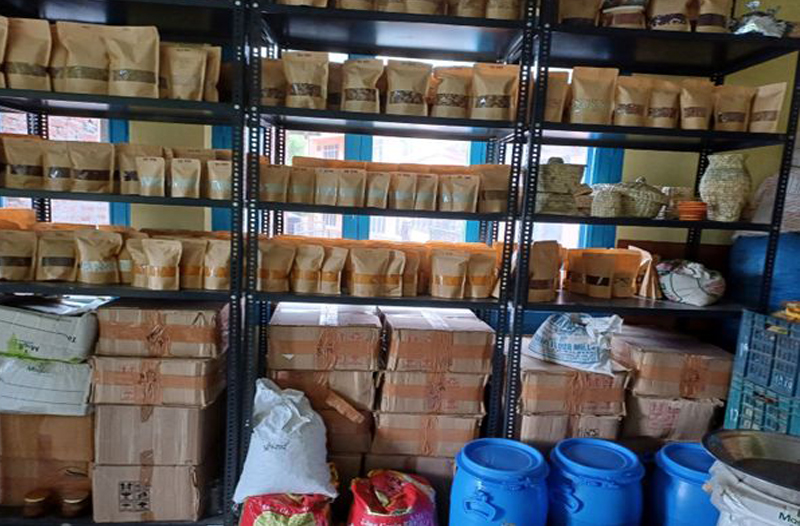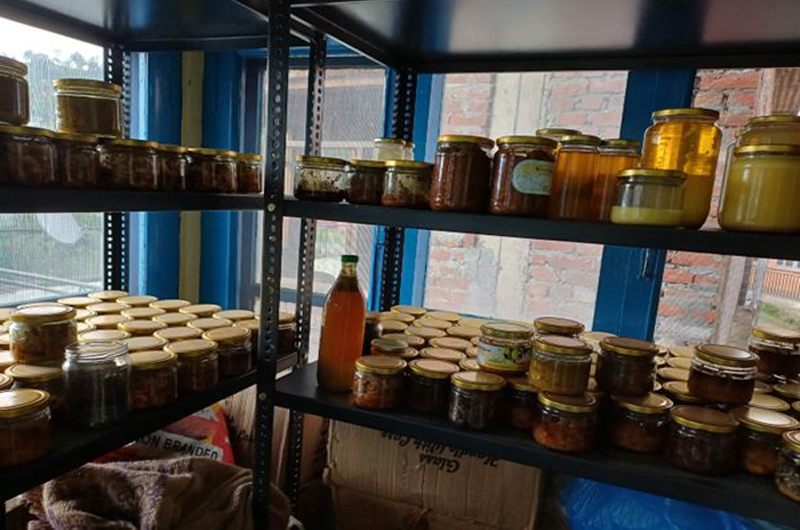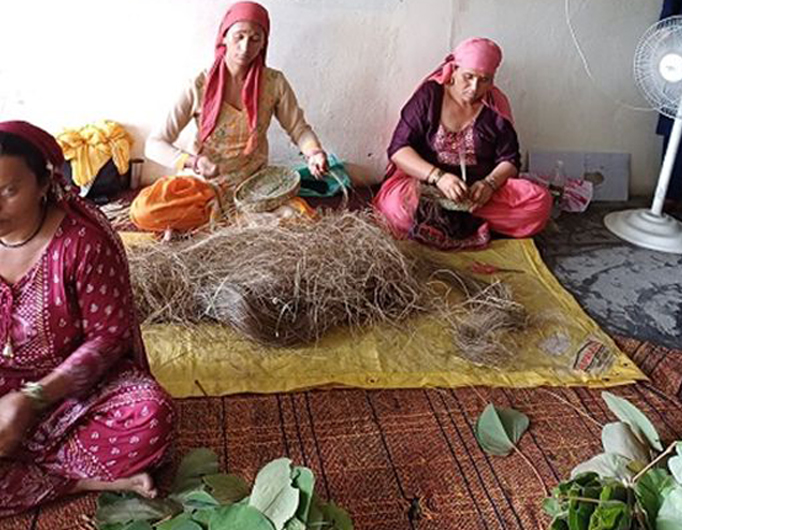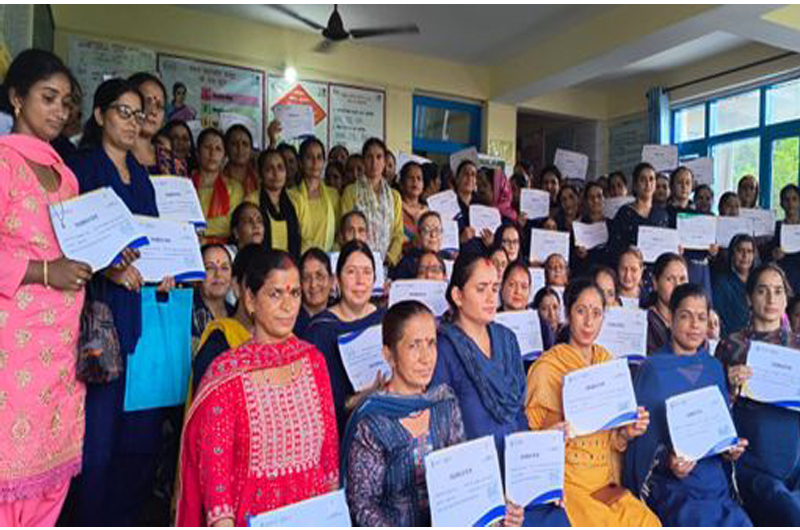Thanks to the Saksham Cluster Level Federation in Basantpur, self-help groups in Himachal Pradesh have helped village women find financial empowerment and self-respect and in the process has emerged as a successful producer of condiments, spices, flours, snacks and oil, among other things. The federation has encouraged women to think of innovative recipes and start new ventures. Sarita Brara has the story
Two hundred women from self-help groups (SHGs) from Basantpur Block in Shimla District were honoured recently with the Lakhpati Didi Samman for earning over one lakh rupees in a year through their enterprises. A total of 183 of these women were from the Saksham Cluster Level Federation.
Among those honoured from the cluster was Kalpana, a multi-talented woman from Shyalti Village. She made and sold pickles, chutneys and ghee, as well as a special item, a mixture of ground baathu saag, dry fruits and swang rice, which is usually eaten during fasts. Kalpana also earned Rs 500 a day, working as a pashu sakhi, taking part in campaigns in villages to teach women everything related to rearing cattle. These campaigns last for 10 to 15 days per round, and two to three rounds are held in a year.

Rashmi, another awardee, comes to the Saksham Cluster Level Federation almost every day to work in a food-processing unit making snacks, including millet ladoos. As a krishi sakhi, Rashmi taught women about organic farming and earned Rs 500 a day for two rounds of campaigns. Hailing from Taror Village, she is engaged in organic farming and grows mustard and sunflower and pulses such as rajma and lobia beans.
All women in the SHGs who are engaged in one type of work or the other are paid Rs 250 as daily wage. The products they make or grow organically are packed at the centre and sold under the brand name, HIM-IRA.
Located at the heart of Basantpur, 13 km from Shimla, the premises of Saksham Cluster Level Federation is abuzz with activity from 10 am to 4 pm. every day. The women are busy making pickles, badias, juices, chutneys and jams, as well as snacks and sweetmeats. Flours made from wheat, millets, sorghum and chickpea, and pulses, spices, oils and other edible products are packed in bags, jars, sachets and other containers for sale under the same brandname, HIM-IRA. Some of the women make containers and ‘plates’ out of a local grass, taur leaves and parts of the khajoor tree. The plates, in particular, are used at community lunches in villages and temples. The women also accept catering orders for traditional Himachali dishes and even other cuisine.

The building is fully occupied, and in a small rented room in another building, a young woman uses a machine to extract either mustard or sunflower oil, depending on the season. In another room, a young girl makes entries on a computer and another checks accounts. The women – young, middle-aged and even above 60 years of age – come from villages as far as 30 km away. They mostly belong to the farming community.
Most women we met at the Basantpur Centre feel that the wages and money they get for their products not only empower them economically but give them a sense of dignity. For some, the daily wage they get is critical for running the house. For example, when Seema lost her husband and there was no one to look after the small landholding her husband owned and she had no means to bring up her children, the centre came to her rescue. She has rented a room near the Saksham premises and works tirelessly at the oil mill and is willing to put in extra hours to bring up her children.
The Federation also helped Geetanjali, an SHG of senior citizens, to start a mobile eatery. Led by Geeta Sharma, the group served Himachali food near the tourist resort of Naldera. Geeta and other women took turns to prepare the snacks. The SHG had earned quite a name for siddus, a famous Himachali dish, and were doing brisk business, but the panchayat under which the area fell objected, as the women were from another panchayat . Now, the mobile eatery is being run at Sundaram Neen.

Set up in March 2020, the Basantpur Cluster Level Federation has not only economically empowered hundreds of women but is also making good money by selling over 70 products under the HIM-IRA brand name. On average, the centre earns a profit of Rs 50,000 every month after paying the wages and rent and meeting all other expenses. The money is ploughed back to start more ventures, says Reema, president of the Saksham Cluster Level Federation that has 272 SHGs with nearly 2950 women members from 22 village organisations in 17 panchayats.
Although the products made by the Saksham Federation are being sold at fairs and festivals in Shimla and other places and have buyers from markets in Chandigarh and other places, Saksham is looking for ways to market the goods online, says Deepa Kanwar, its vice-president. They are holding talks with Amazon and other such online entities and hope to clinch a deal soon.
A model for others to follow, Saksham Cluster Level Federation at Basantpur has not only earned a name for itself and its products, it has encouraged women to think of innovative recipes and start new ventures. Kalpana, for instance, is working on a tea recipe made with stinging nettle (bichhu buti) and other ingredients. “It is because of the encouragement and opportunities provided by the Basantpur Cluster that today I am part of the board of directors of the farmers producers company that helps farmers in every way, including marketing of their products,” she says.
(The writer is a senior journalist based in Shimla.)



 from Webdoux
from Webdoux